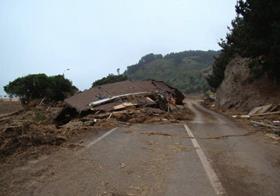
Chilean fresh produce association Fedefruta says it is confident that normal trading conditions can be returned to fruit production in the earthquake-hit country in the near future, although there remain some major challenges to overcome.
Fedefruta president Rodrigo Echeverría said in a statement that restoring rural road networks, electricity supplies and access to fuel were the “key problems” that needed to be resolved this week for the normalisation of the sector.
Mr Echeverría said that although Fedefruta did not have an idea of the overall impact on the sector of the earthquake, the organisation was collecting data through a survey of producers and expected to have specific figures on the damage to crops available soon.
However, he said that the association had so far seen several major factors from the responses it had so far received that were affecting a significant number of growers. These included damage to crops, with some vineyards having been destroyed, and facilities.
Mr Echeverría said another major problem was access to electricity and water, with, in the latter case, some water supply lines having been fractured.
He admitted that while there could be a problem in supplying major cities, the association was aiming to demonstrate to consumers that products were available.
However, Fedefruta’s president said that in order to achieve this, it was important that damaged rural roads and bridges were rebuilt and that “everything possible was done to make sure that fruit reached consumers in the best possible condition”.
“We are hopeful that petrol stations will normalise supply, but for this to happen we need electricity in the majority of affected places, at the very least for cold stores and packhouses,” said Mr Echeverría.
“We have also stressed to the authorities the need to count on the rural road network – there will be chaos if people, after losing their houses – and in some cases their lives – lose their jobs.”
But he added: “We are certain everything is being done to return normality to the sector in the near future, but what we need today, urgently, is to show that there are supplies and the only way to do that is to make sure there are products in the supermarkets.”



